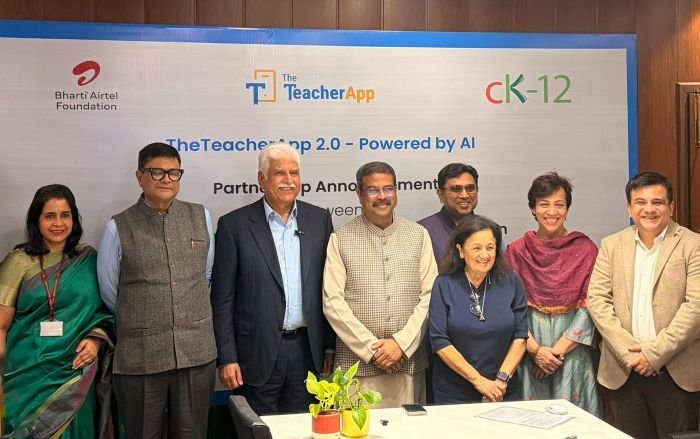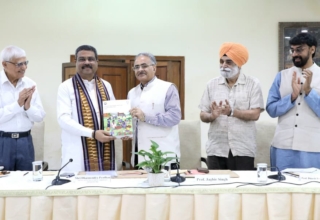ON THE OCCASION OF THE FIRST ever World Youth Skills Day on 15th July 2015, when the country kickstarted Skill India campaing, 150 Skill Vans were flagged off to create awareness among masses about the Government’s initiatives and policies of the skill development. These vans, which were flagged off by MSDE minister Rajiv Pratap Rudy will drive through Delhi and NCR region to make people aware about “Pradhan Mantri Kaushal Vikash Yojana”, “National Skill Development Mission” and ‘Skill Loan’ initiative etc.all of which were launched on the same day by the Prime Minister. A number of programmes like Prabhat Pheris, Nukkad Natak and functions at the State Governments level awere also organised to create awareness among the masses. Across the country, 2,33,000 youth were awarded certificates from ITIs, and 18,000 plus graduating students received job offer letters on the occasion of World Youth Skills Day. The Prime Minister personally presented industry job offer letters to five female ITI graduates at the event. Across India, special PMKVY mobilization camps were organized at 100 locations with Nehru Yuva Kendra Sangathan (NYKS). A national SMS campaign is also being rolled out to build awareness of the program, reaching about 40 crore subscribes. Fresh PMKVY training was initiated in 1,000 centres across all States and Union Territories in India today, covering 50,000 youth in 100 job roles across 25 sectors Prime Minister saw a demonstration of the Safeducate Container School, India’s first Container School was set up in Ambala by Safeducate by refurbishing discarded containers and using them for skill training in logistics at Vigyan Bhavan for the event. 189 students per month will be trained using four such containers under PMKVY with a view to scale up skill initiatives quickly in areas with low levels of infrastructure.
The Union Cabinet on July 2 gave its approval for introduction of Common Norms across all skill development schemes being implemented by different Ministries/Departments of Government of India. Currently, over 70-odd Skill Development Programmes (SDPs) are being implemented by Government of India, each with its own norms for eligibility criteria, duration of training, cost of training, outcomes, monitoring and tracking mechanism etc. This multiplicity of norms and parameters has created a diffusive effect of SDPs, which need to be streamlined in order to achieve the final outcomes envisaged. Common Norms seek to rationalise the whole spectrum of skill development processes and systems including inputs, outputs, funding/cost norms, third party certification and assessment, monitoring/tracking mechanisms, and empanelment of training providers.
Common Norms define the activities constituting ‘Skill Development’ in the country, skill development courses and their alignment with the National Skills Qualification Framework, broad input standards for training programmes and the outcomes expected from these programmes. The outcomes of skill training programmes have been defined in terms of placement achieved in wage and self- employment, both for fresh trainees as well as existing workers who have undergone Recognition of Prior Learning. Since the common norms are aimed at being outcome focused, the cost norms and fund flow mechanism for skill development programmes have also been linked to specific outcomes achieved. Cost norms include support for components like mobilisation of candidates, trainers’ training, placemen, expenses, post-placement tracking/ monitoring and infrastructure costs.
The proposal envisages the creation of a Common Norms Committee under the Chairmanship of Secretary, Ministry of Skill Development and Entrepreneurship to bring about uniformity and standardisation among the skill development schemes of the Central Government. The Committee will also consist of eight other representatives from relevant Central Ministries/ Departments, State Governments, National Skill Development Agency (NSDA) and National Skill Development Corporation (NSDC), with a provision for inviting experts and other significant stakeholders who may be necessary in the decision making process. It will be empowered to revise/amend the common norms, schedules of the notification, training costs and funding norms for skill development programmes.
While the common norms would be applicable to the skill development schemes of the Government of India being implemented through various Ministries/Departments, the State Governments are also expected to align their skill development schemes with the common norms so as to bring in uniformity and standardization.








